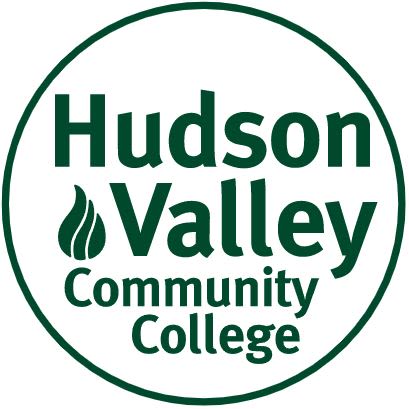Open for business on the international stage
To increase enrollment and revenue and secure its future, Hudson Valley Community College has formed partnerships in countries around the globe.
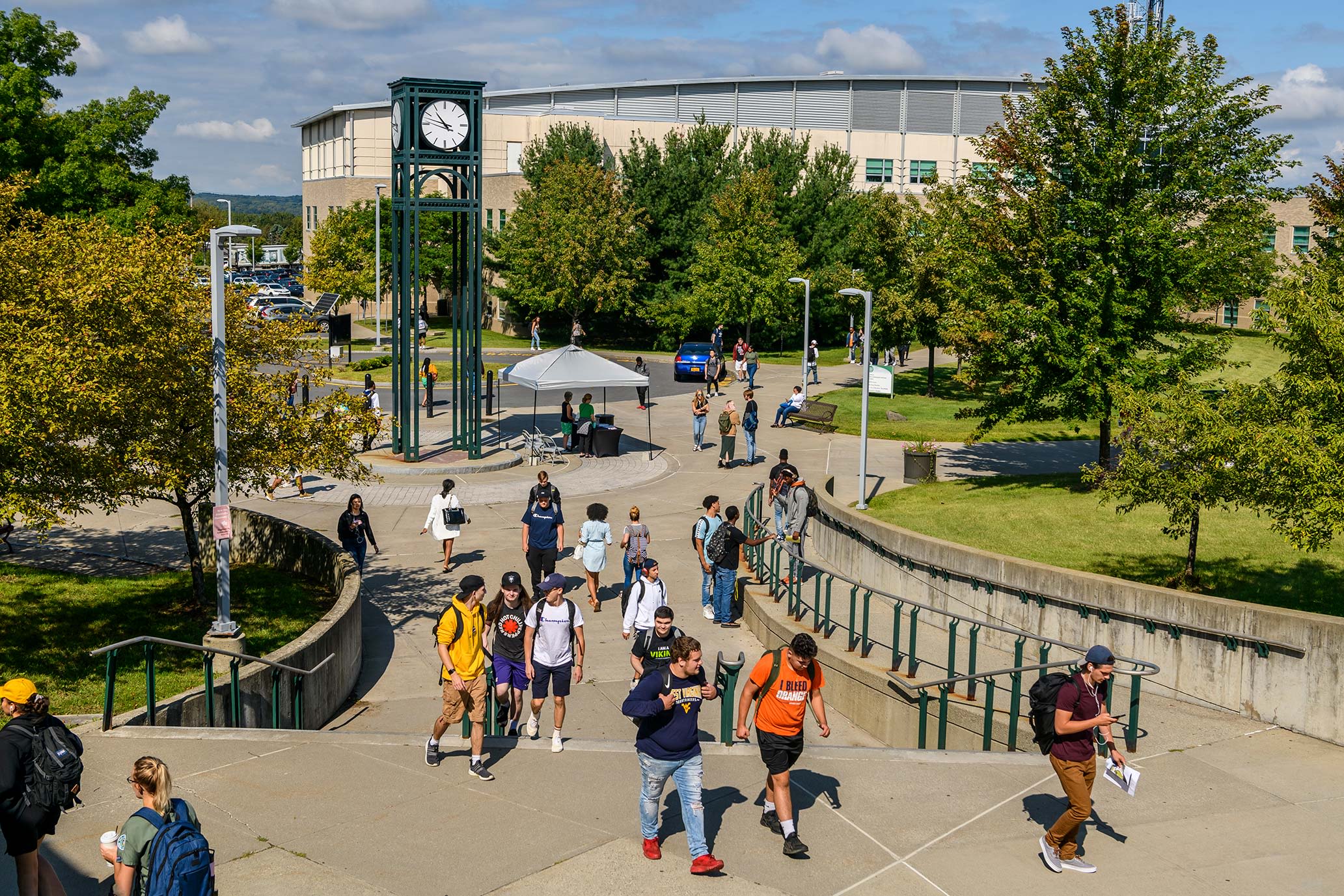
From job training to college transfer to GED classes, the nation’s community colleges do a little bit of everything.
But as the name suggests, community colleges are traditionally limited, by design, to a specific geographic area, where they serve local residents and support local businesses and industries.
Unlike other two-year institutions, Hudson Valley Community College has reached out far beyond its home base in New York’s Capital Region. By working to forge international partnerships in Asia, Africa, the Caribbean, Latin America, Europe and elsewhere, the college is setting the stage to reverse an enrollment decline, help businesses meet their employment needs, and serve both global and local communities.
“We are not on the defense. We are on the offense,” said Hudson Valley President Roger A. Ramsammy, Ph.D. “We are building. We are engaging. We are getting creative and looking toward the future — and creating global partnerships helps us do that.”
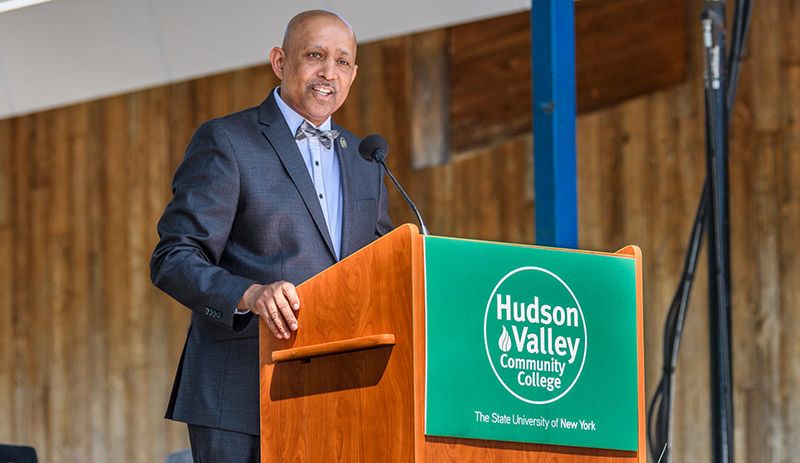
‘What else can we do?’
Hudson Valley Community College, part of the State University of New York, has nearly 10,000 students and offers more than 80 degree and certificate programs, many in healthcare and skilled trades. It’s located in Troy, a city just across the Hudson River from the state capital of Albany.
When Ramsammy arrived at Hudson Valley in 2018, he didn’t like the numbers he saw. Enrollment had been declining steadily for the past decade, just as it had been at other two-year colleges nationwide. Worse, projections showed the number of high school graduates across the region and state would continue to shrink through 2031. And as he did get-to-know-you meetings with area business and government leaders, they all told him the same thing: There simply weren’t enough workers.
Ramsammy initially sought to expand existing high-demand programs and offered free English as a Second Language classes in underserved communities with high refugee populations. But he quickly realized the college’s future depended on venturing far outside its traditional boundaries.
There was precedent. About a decade earlier, the semiconductor company GlobalFoundries (GF) announced it would build a new plant in nearby Malta. Hudson Valley faculty visited the company’s plant in Dresden, Germany, to learn more. The knowledge gained on this trip went into a new semiconductor manufacturing technology degree and informed the design and programming of a new $13.5 million college facility next door to GF’s Malta plant.
Today, GF employs approximately 3,000 workers in Malta and just announced plans to build a second computer chip factory there. This summer, Hudson Valley broke ground on a second building at its Malta campus that will provide more space for STEM, healthcare and skilled trades programs. A donation from GF will modernize the college’s existing semiconductor labs, add new labs for radio frequency, vacuum technology and mechantronics, and create a new apprenticeship center.
The lesson was clear: Global partnerships could bring big returns to the local community.
“Our job is to say, what else can we do?” Ramsammy said. “We recognized that when you partner with other groups around the world, you also recognize that they have been advancing and addressing these problems for a long time and have some of the expertise to help you grow.”
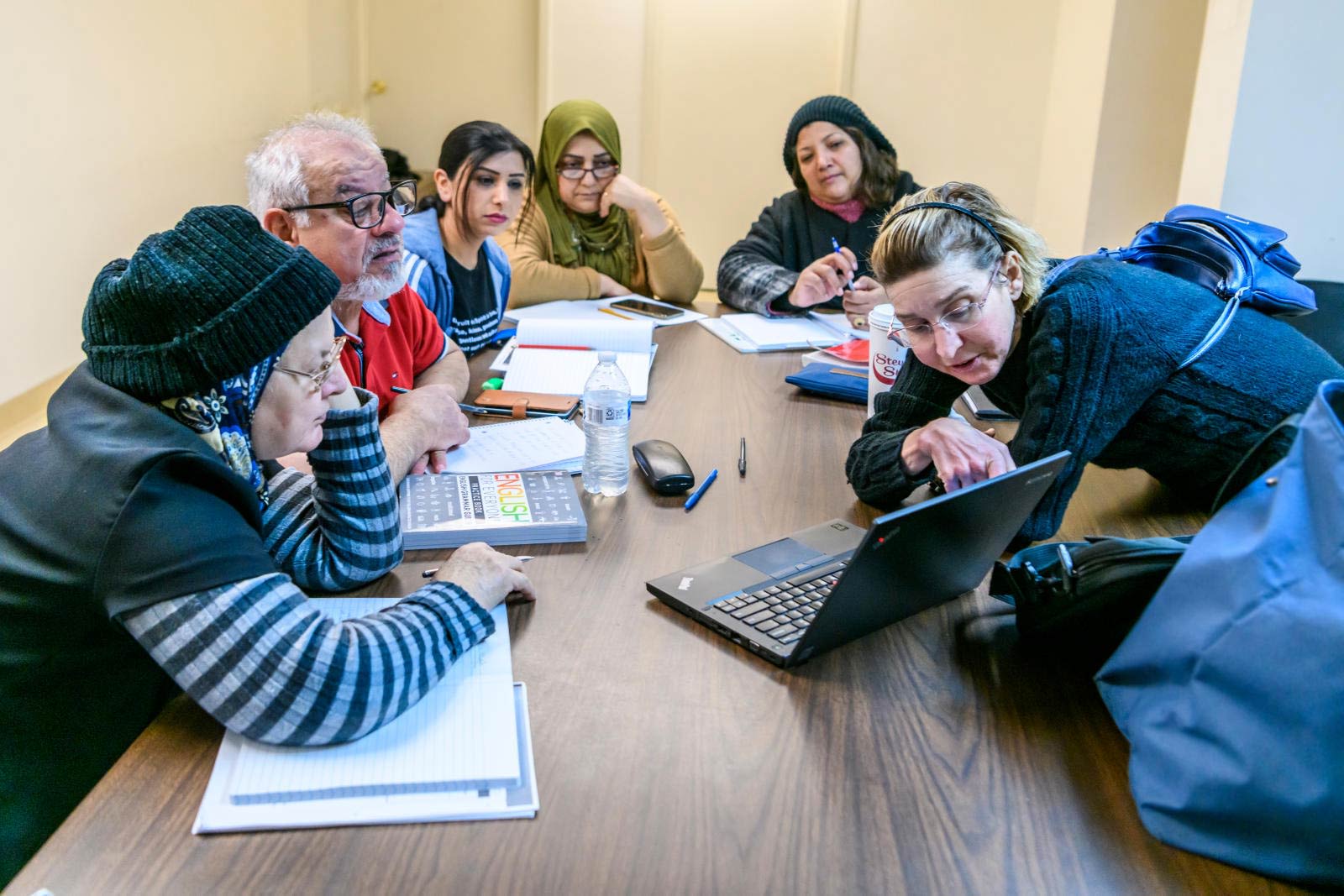
Free ESL classes for refugee populations
Free ESL classes for refugee populations
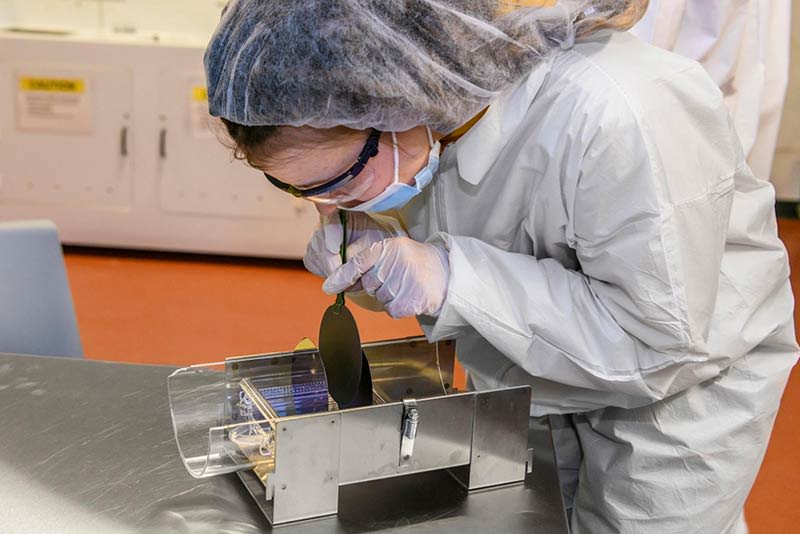
Hudson Valley Community College STEM students at work
Hudson Valley Community College STEM students at work
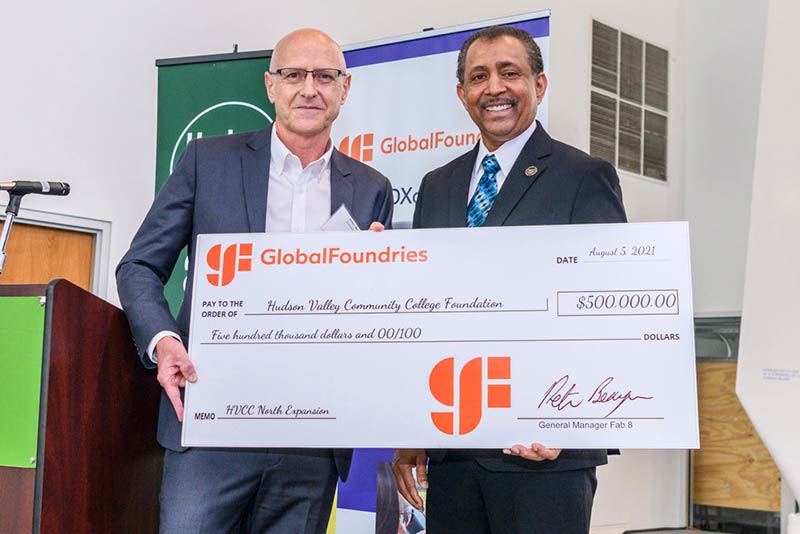
GlobalFoundries will modernize the college’s existing semiconductor labs
GlobalFoundries will modernize the college’s existing semiconductor labs
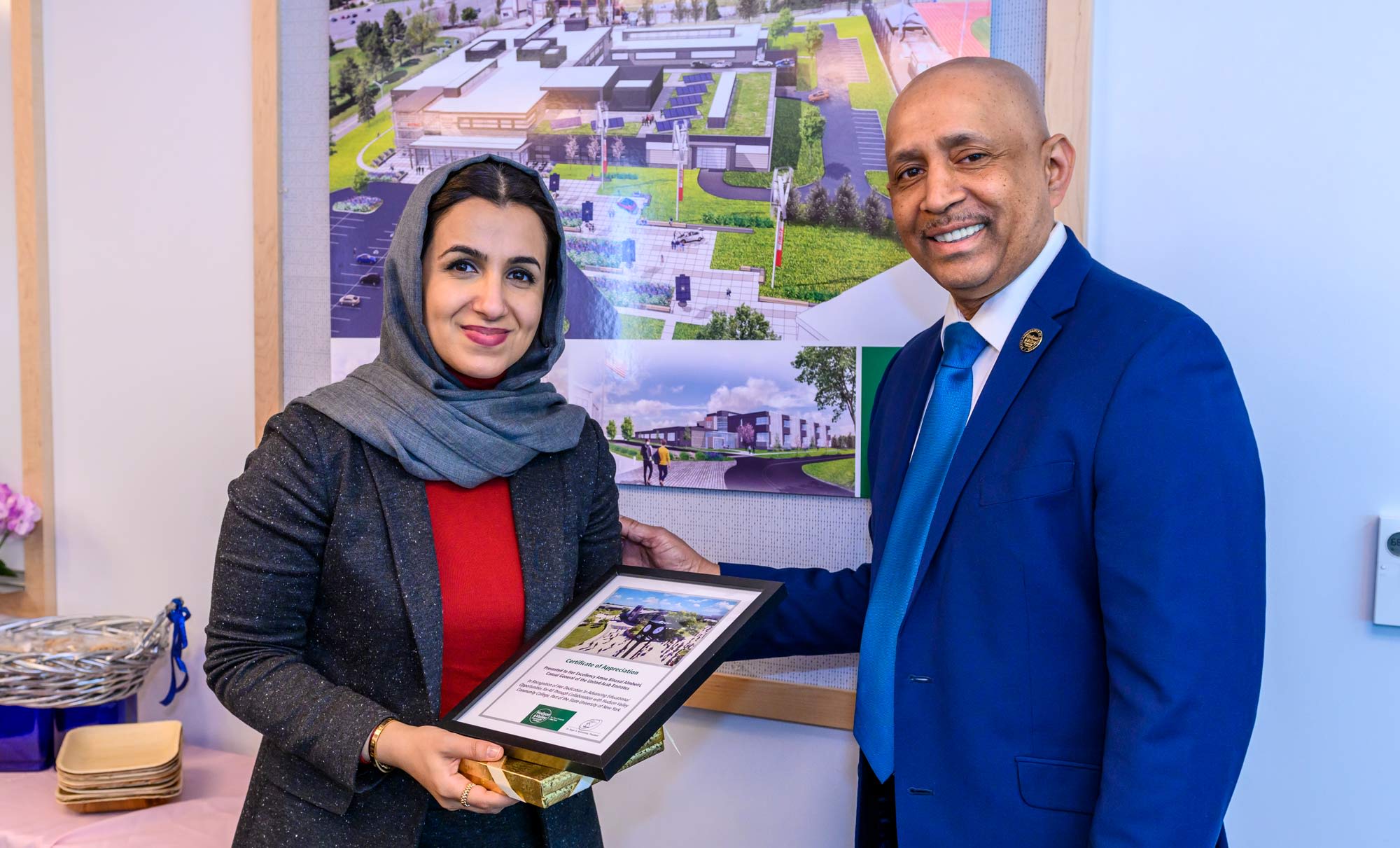
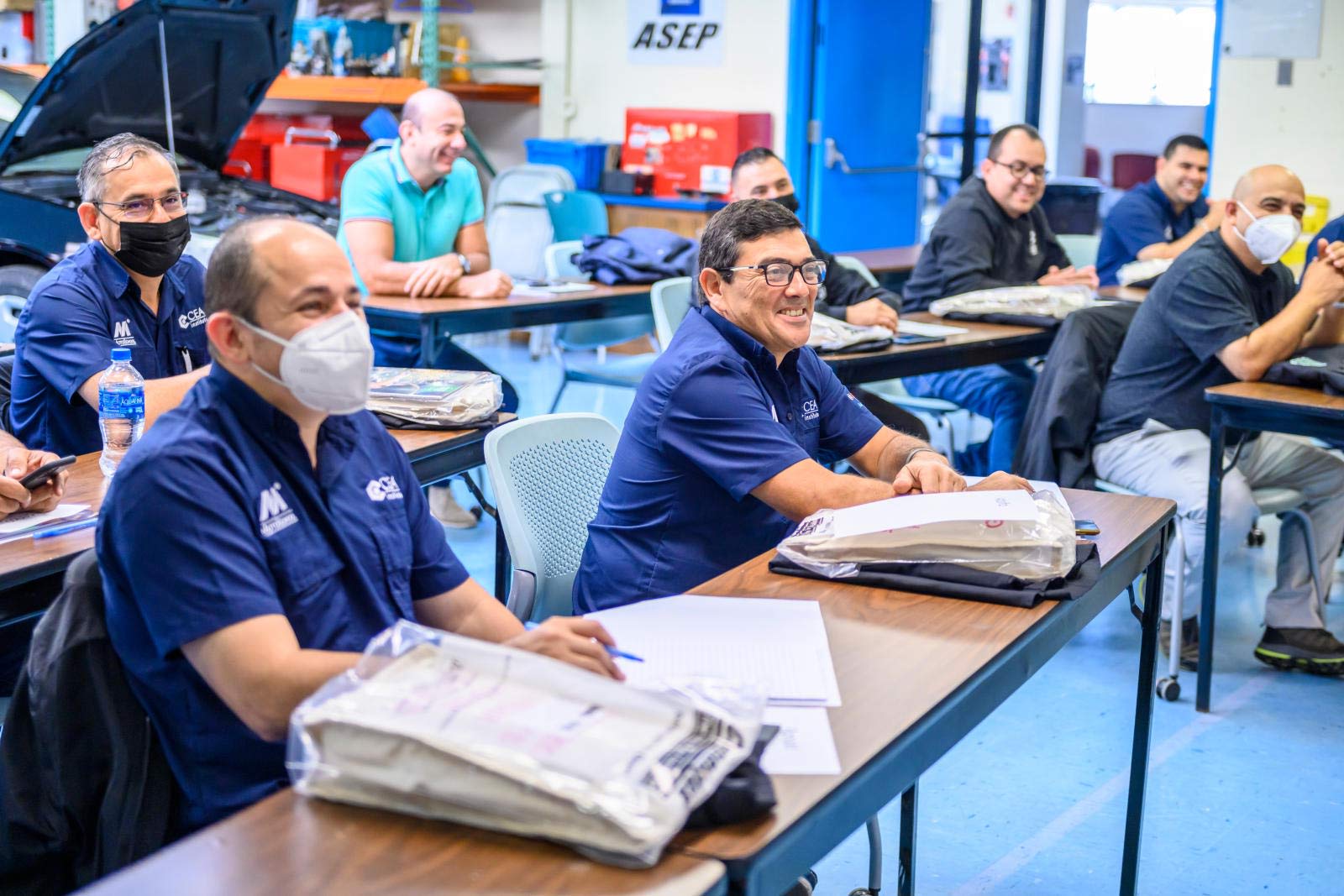
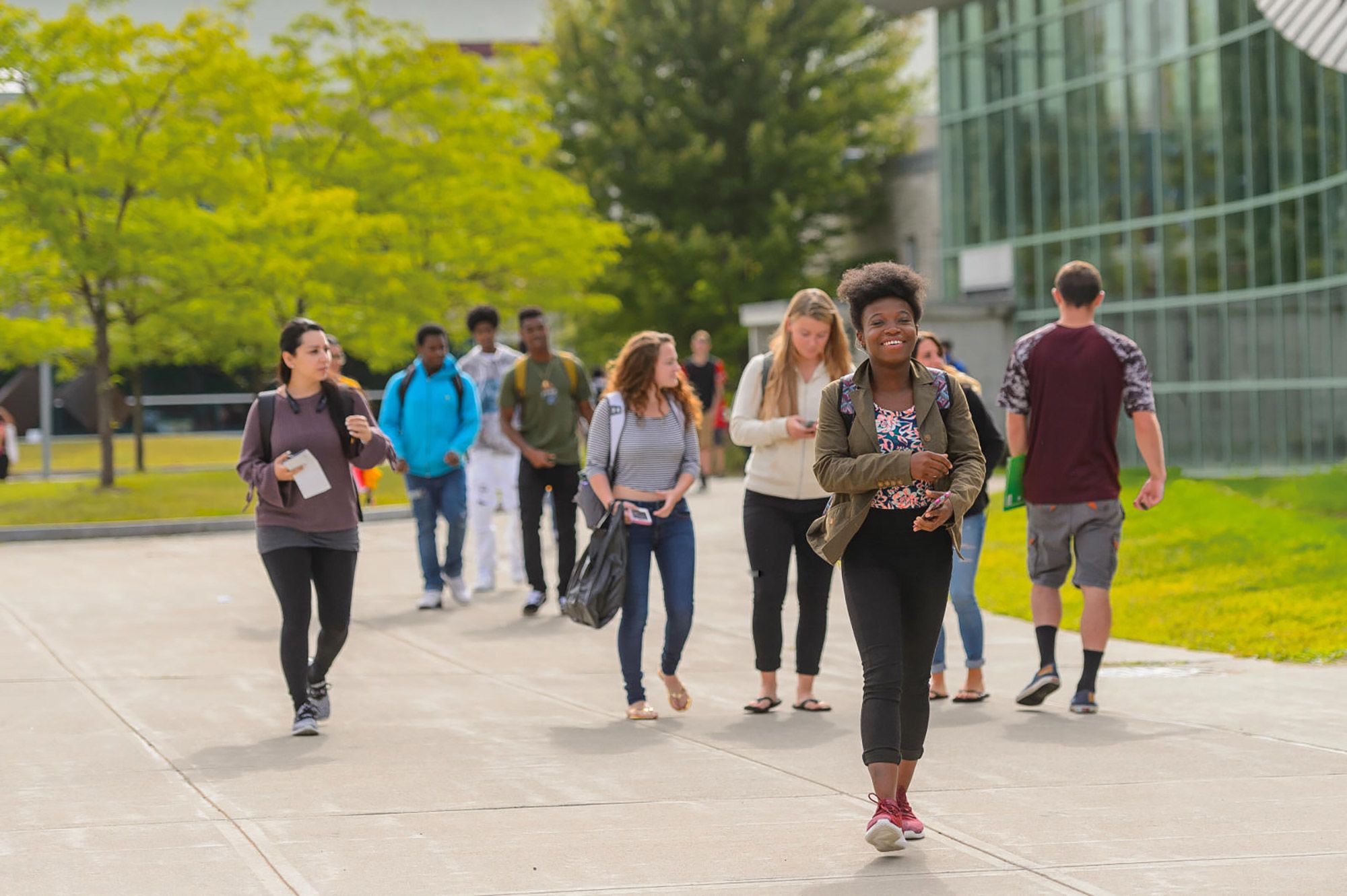





Creating global partnerships
In Ramsammy’s previous post as president of Miami Dade College’s West Campus in Florida, he had met with a congressman from Costa Rica. Shortly after Ramsammy arrived in New York, he reconnected with Costa Rican officials, who invited him to meet with government, education and business leaders in the Central American nation.
Ramsammy’s first visit to Costa Rica quickly bore fruit — and confirmed his belief in the value of global partnerships.
In 2020, Hudson Valley established its Global Classroom High School Program to provide low-cost online classes to high school students in Costa Rica, and has since expanded the program to 23 other countries. In May, 10 automotive technology instructors came to Hudson Valley for a five-day intensive “train-the-trainer” program, where they learned about electric vehicles and then returned home to teach others this emerging technology.
Earlier this year, Hudson Valley established a partnership with the Costa Rican Ministry of Education to provide English as a Foreign Language instruction to 1,000 public school teachers. The first 90 teachers will start the new online program this fall.
Since 2019, Ramsammy and other Hudson Valley officials have made 10 trips abroad to seek out partnerships, recruit students, bring humanitarian aid and forge connections. Hudson Valley delegations have visited Ramsammy’s native Trinidad, Israel, the Philippines, and Aruba, where the college signed an articulation agreement with a medical school.
When international companies Welcon and Marmen announced in 2021 that they would build a plant in the Port of Albany to produce offshore wind towers, Ramsammy dispatched college officials to Denmark and Canada, respectively. Hudson Valley used these fact-finding trips to company facilities to create new programs and specialized labs to train the highly skilled welders and fabricators the new plant will need.
“Over the last year and a half, we put together exactly what they advised us to do,” Ramsammy said. “We didn’t have that kind of expertise here. Learning what’s necessary and fostering our relationship in other countries has been crucial in allowing us to create programs that will train our regional workforce for the jobs that need to be filled.”
Sustaining the college
International outreach has traditionally been thought of as something that four-year universities do — not two-year public colleges. But the data point to a significant return on investment. International student enrollment is up, and related annual revenue has exceeded $1 million — more than five times what the college spends on travel. International partnerships are indeed paying local dividends for the college and its partners.
While these cross-border partnerships were beginning to grow, Ramsammy pushed Hudson Valley further onto the global stage.
He brought the International Center of the Capital Region headquarters to Hudson Valley a year ago — it shares space with the college’s Office of Global Initiatives — and international visitors are now making the trek to Troy. The college has hosted leaders from Egypt, Ghana, Moldova, Namibia, Nigeria, Pakistan and Poland in 2022 alone.
In June, Ramsammy was elected to the board of directors of the World Federation of Colleges and Polytechnics, an international organization that provides a forum for technical colleges around the world to exchange ideas and best practices for job-related training and education. Ramsammy is the only U.S. college president on the board.
Ramsammy said the federation’s most recent World Congress in Spain was eye-opening. Good ideas are out there, he said, and international forums are invaluable.
Indeed, the larger purpose of Hudson Valley’s global partnerships is to ensure the college’s future. Community colleges elsewhere have managed enrollment declines by cutting programs and faculty. Hudson Valley has not had to take such measures. Now, Ramsammy said, students are starting to return after the disruption of the pandemic, and colleges that shut down programs will struggle to serve their communities.
“I’m trying to keep the college sustained for that turnaround,” Ramsammy said. “Global partnerships give us the tools to do more to support our community and keep our local businesses growing and expanding.
“They provide a different approach to drawing in new students and supporting the workforce — one that doesn’t require us to compromise educational offerings, but to expand them, which, as a community college, is ultimately what we are here to do.”
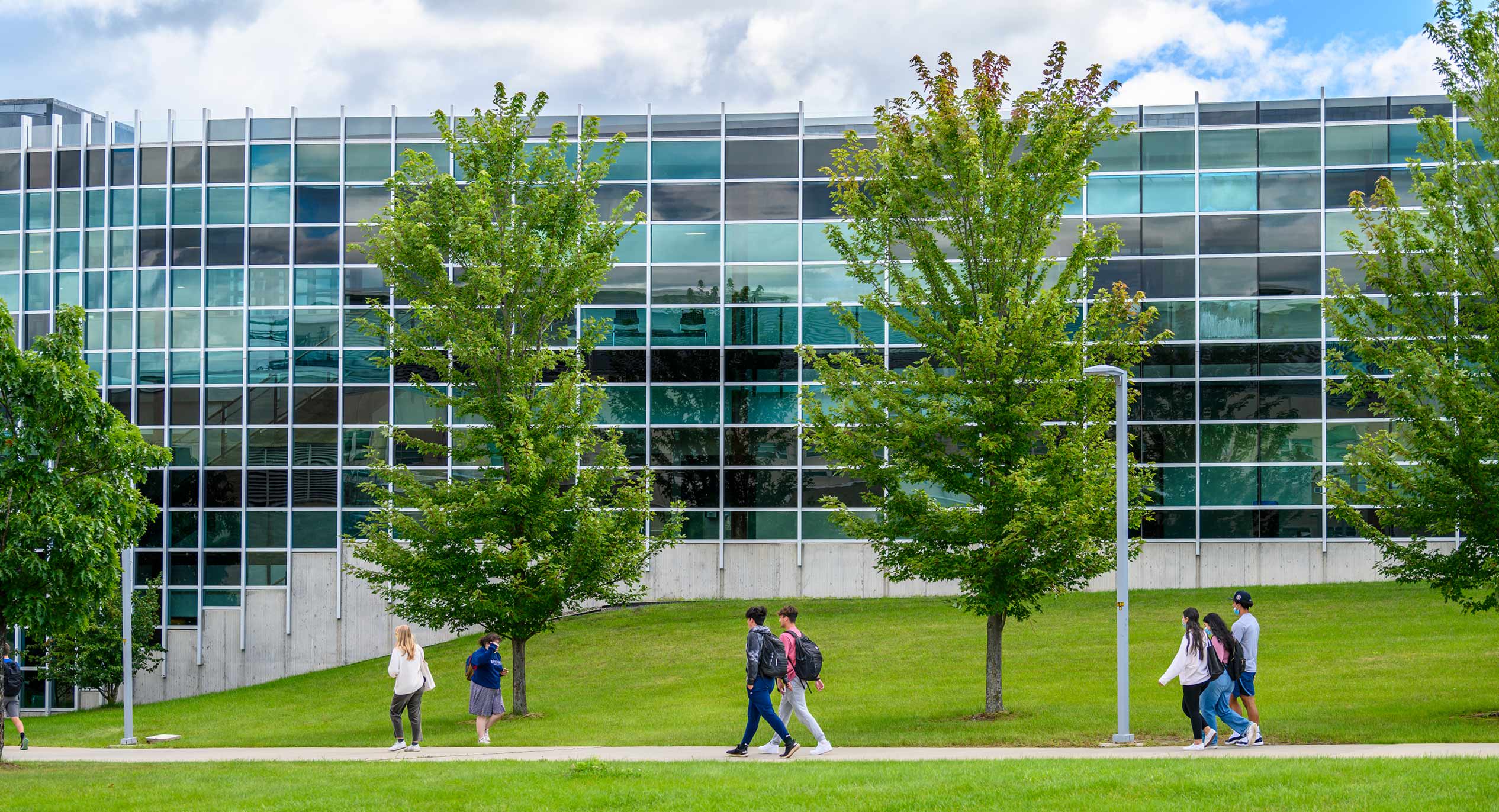
This custom content is sponsored by Hudson Valley Community College and developed by Inside Higher Ed's sponsored content team. The editorial staff of Inside Higher Ed had no role in its creation.

